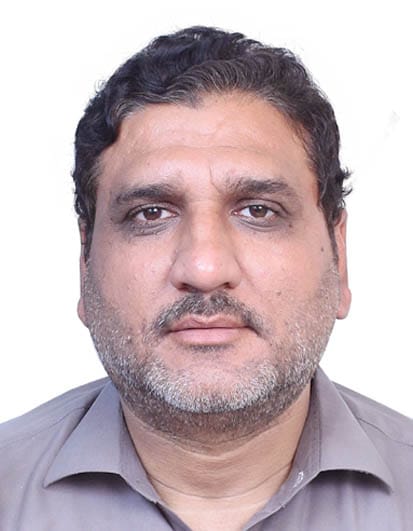Shahzad Rasheed
Poliomyelitis (polio) is a highly infectious viral disease, which mainly affects young children. The polio virus is transmitted by person-to-person and is spread mainly through the faecal-oral route, or, less frequently, by a common vehicle, such as contaminated water or food. Thereafter, the polio virus multiplies in the intestine, from where it can invade the nervous system and cause paralysis.
Polio is a highly contagious and incurable disease, which mainly affects children under five years of age leading to irreversible paralysis and possibly death. For decades, both private and government organizations have been putting efforts through their partnership to eradicate polio completely from the different parts of the globe and as a result of those efforts there are left only two countries which are currently polio endemic. Since Pakistan is one of those two countries which still remain polio endemic along with Afghanistan, it is significant to address this issue and work on the preventive measures to control the incidence of such a lethal disease.
Since the launch of the Global Polio Eradication Initiative (GPEI) in 1988 the global incidence of poliomyelitis has fallen by nearly 99 %. From a situation where wild type poliovirus was endemic in 125 countries across five continents, transmission is now limited to regions of just two countries – Pakistan, and Afghanistan. A sharp increase in Pakistan’s poliomyelitis cases in 2014 prompted the International Health Regulations Emergency Committee to declare the situation a ‘public health emergency of international concern’. Global polio eradication hinges on Pakistan’s ability to address the religious, political and socioeconomic barriers to immunization; including discrepancies in vaccine coverage, a poor health infrastructure, and conflict in polio-endemic regions of the country.
Established in 1994, Pakistan’s polio program demonstrated early success. However, despite over 120 supplementary immunization activities in the last decade, polio eradication efforts in Pakistan have been unable to achieve their objective of halting polio transmission. Variable governance, and inconsistent leadership and accountability have hindered the success of the polio program and the quality of the campaigns. Insecurity and terrorism has interrupted polio activities, and community fears and disbeliefs about polio vaccinations continue to persist. Areas covered
The global immunization campaign has made the world polio-free except for Pakistan and Afghanistan. Despite hectic efforts to eradicate polio, new cases regularly hit the newspaper headlines in Pakistan. Certain factors like insecurity, religious misconception, conflicts and illiteracy are seriously hampering Pakistan’s efforts against polio.
The main hub of polio in Pakistan is Afghan border, the erstwhile Federally Administered Tribal Areas or FATA (currently the part of Khyber Pakhtunkhwa). Most children here had not been administered complete doses due to law and order situation, lack of health care facility and mismanagement of health institutions. There are concerns that the quality of the vaccine has contributed to the rise of polio cases in the country. It is necessary to store vaccine drops and injections in cold containers. In some cases, absence of cold storage and non-functional cold chain equipment limits the antigen efficacy.
Security concern is also very important issue in the eradication of polio in KP and FATA. In 2014, more than 300 cases were reported after the tribal leaders of North Waziristan Agency banned polio vaccination. In 2012, there was a targeted killing of polio team workers and almost 40 vaccinators were killed. During the past few years, there have been reported kidnappings and beatings of vaccinators. Owing to such attacks, polio campaign has intermittently been suspended.
The Pakistan Polio Eradication Programme confirmed that a 10-month-old boy from Union Council Mullazai in Tank district is the 11th polio case reported in Khyber Pakhtunkhwa this year, raising Pakistan’s total polio cases in 2025 to 18. Last year, the country recorded 74 cases nationwide. In a statement, the Programme emphasized that the ongoing detection of polio cases highlights the continuing threat to children, especially in areas where vaccine acceptance remains low.
In Khyber Pakhtunkhwa, allegations of embezzlement of funds intended for polio eradication efforts have surfaced, prompting investigations and scrutiny by both the provincial assembly and the National Accountability Bureau (NAB). Specifically, funds released for stipends and food for police personnel providing security to anti-polio vaccinators was reportedly misappropriated.
Despite decades of efforts and billions in funding, Pakistan remains one of the last two countries in the world where polio is still endemic. The country has received substantial financial and technical support from international organizations, including over $242 million from Japan alone. However, the continued presence of polio cases, coupled with reports of corruption and negligence, raises serious concerns about the mismanagement of funds allocated for eradication efforts.
A recent surge in the number of polio cases in the country points towards the gaps present in the system. These gaps and challenges not only pertain to socio-cultural and religious factors but also highlight the technical inefficiencies and capacity gaps integral to addressing the crisis.
To effectively combat polio in Pakistan, a multi-pronged approach is needed, focusing on improving vaccination coverage, strengthening surveillance, and enhancing community engagement. Key recommendations include: increasing the quality of vaccination campaigns, particularly in high-risk areas, enhancing surveillance systems to detect and respond to outbreaks, and building trust with communities to improve vaccination acceptance.

